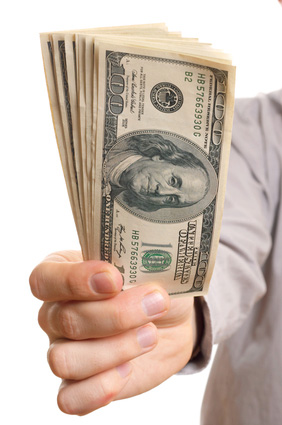
Should You Pay Off Your Personal Loan Early?
Trying to get rid of debt is never easy.
You may have even tried to apply for a debt relief program to help you get out of debt faster.
And the advice that you hear from most professionals is the same.
If you want to save money in the long run, you have to pay off your debt as quickly as possible.
But even if you could pay it off at once, should you?
There are probably a lot of questions on your mind right now. But first, you need to understand what happens when you pay off your debt.
Important takeaways:
- Paying off your personal loan early can lead to prepayment fines and penalties
- Go through your loan agreement to see if you will have to pay these penalties
- Paying off your loan early can also lead to your credit score dropping
- Consider other loans that you could pay off instead
The Difference between Personal Loans and Other Forms of Debt
There are various types of loans that you can apply for. Since there is no one-size-fits-all loan, your needs will usually dictate which one to get. You have auto loans for your cars, student loans for college, and mortgages to pay for your house.
Similar to all of these loans, personal loans will give you a lump sum amount to use. You might get one for various reasons, such as your home might need renovating, or you have wedding plans. Other than general details about what you will do with your money, there is no specific way that you should spend it.
"It makes no sense to pay higher rates than you have to..."
Can you Finish Off Your Personal Loan Early?
Yes, you can pay off a personal loan early. You could do it in a single windfall or add more payments to the monthly installments. Regardless of what you choose, you might not want to pay it off early. Since some lenders can have early loan payment penalties, trying to end it early can do more harm than good.
There are two ways that a lender could decide on the fine for early payments. It could be the amount that the lender would lose in interest if you happen to pay off the loan early. They may even calculate your penalties as a percentage of your total balance.
The method that they use to penalize you can vary between lenders. You can even check your loan agreement to find out if they are charging to finish off early.
How It Affects Your Credit Score
If you happened to apply for a debt relief program, someone must have suggested paying off your credit card debt in a lump sum.
One of the reasons why many advise this is that paying off your debt early can give your credit score a boost. Unfortunately, credit card debt and personal loans are very different in terms of affecting your credit score.
"Prepare, compound, and concentrate on building the financial life you deserve..."
Personal loans are a type of installment debt, whereas credit cards happen to fall under revolving debt. Simply put, there is no time limit on when you should pay off your credit card bills. You can even take on more debt through a card while you are paying it off. Therefore, it is revolving debt.
On the other hand, installment debt refers to loans that have a set period to pay back the amount. So during the loan term, you will have to pay off monthly installments until the account closes.
Your FICO score tends to favor open accounts more than closed ones. So if you pay off your loan too quickly, your credit report will have another closed account.
Furthermore, how long an account stays open is an important thing to consider for your credit account. The length of your accounts tends to make up 15% of your total FICO score. So the longer one tends to stay open, the better your credit score will look.
Consider Other Debts
You want to get rid of your debt as quickly as possible. But starting with your personal loan might not be such a good option. Since it has a lower interest rate and is generally quite beneficial if it remains open, you should consider other types of loans instead.
If you have money to spare, why not try paying off your auto loan or your payday loans? Payday loans can have especially high-interest rates, which should make them your first priority.
You could also consider paying off your credit card debt, which can stack up quite high. You should try to settle that quickly, especially if you use it a lot. As long as you are focusing on debts with higher interest rates, you will save money in the long run.
Bottom Line
It is never easy to say whether you should pay off your loan quickly or not. As long as you are considering all of your options, it could make sense to you. It can even be a smart choice if you are joining a debt relief program and are trying to eliminate all of your debt.
About the Author
Lyle Solomon is a licensed attorney in California. He has been affiliated with the law firms in California, Nevada, and Arizona since 1991. As the principal attorney of Oak View Law Group, he gives advice and writes articles to help people solve their debt problems.
"Imagine how fast could you pay off your balances if your monthly payments were cut in half overnight..."

